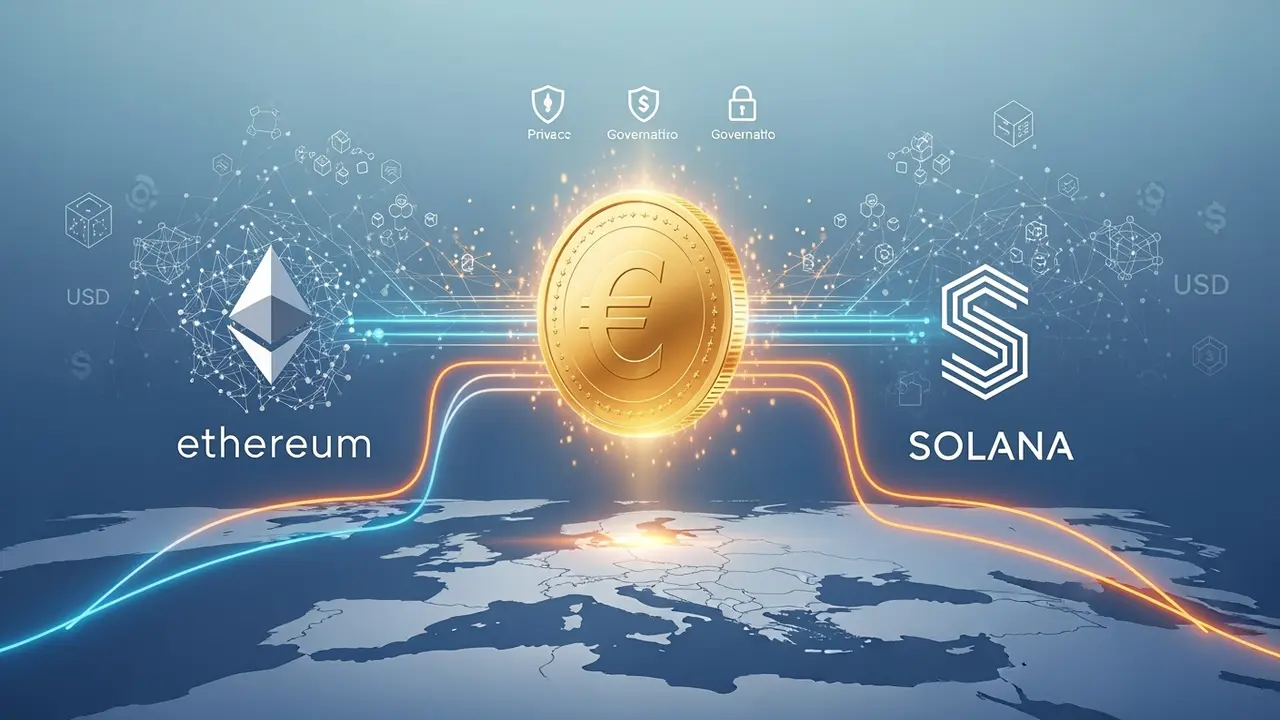Catenaa, Friday, August 29, 2025- European officials are considering issuing a digital euro on public blockchains such as Ethereum or Solana, marking a shift from previous plans for a centrally controlled system.
The move follows US legislation giving regulated dollar-backed stablecoins an early advantage in global finance.
Deploying the euro on public networks could expand its global use, allowing integration with decentralized finance, cross-border wallets, and payment systems without building new infrastructure. Ethereum offers programmability and a robust developer ecosystem, while Solana provides high throughput and low fees suitable for consumer-scale transactions.
Analysts note that public deployment would increase the euro’s visibility beyond Europe compared with a private ledger approach.
Officials continue to weigh significant risks.
Privacy concerns arise from public blockchains potentially conflicting with EU data protection rules, while technical and governance challenges include scalability limits, reliability concerns, and control over network validators.
Policymakers warn that a widely accessible euro token could divert bank deposits if not carefully structured, affecting financial stability.
European authorities emphasize that digital euro regulation remains technology neutral. The European Commission is negotiating the proposal with the European Parliament and Council.
The European Central Bank is exploring both centralized and decentralized ledger technologies and expects a digital euro to be technically ready in roughly two-and-a-half to three years after legislation is enacted.
US stablecoin laws, including the GENIUS Act, have intensified urgency, as European officials aim to maintain monetary sovereignty and strategic autonomy while ensuring privacy, banking stability, and cross-border competitiveness.


